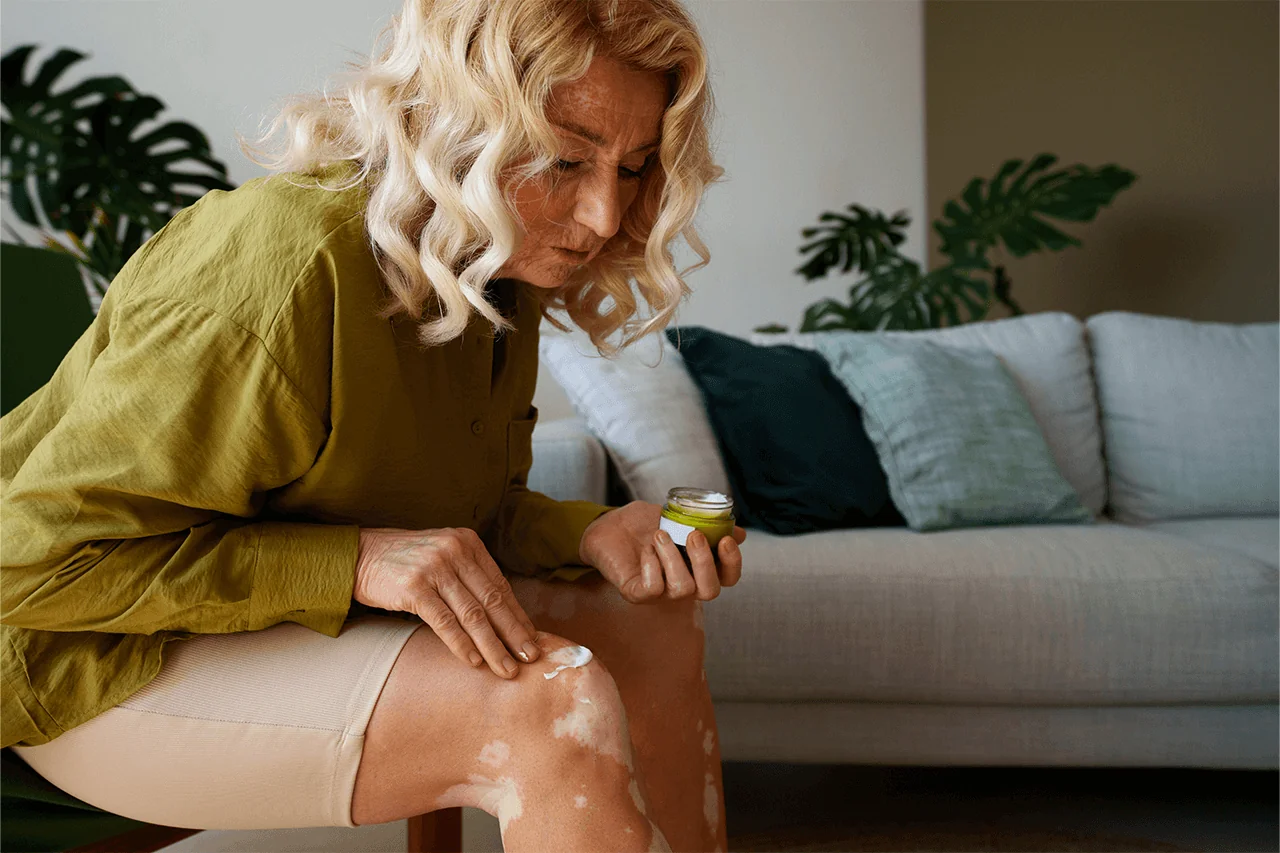Grandmothers, those guardians of stories and traditions, have bequeathed us an invaluable treasure: ancestral wisdom. Their home remedies, passed down from generation to generation, have brought relief and well-being to numerous people over time. Among these remedies, we find solutions for a common discomfort that affects people of all ages: knee pain.
In this blog, we will embark on a journey towards natural well-being, honoring the wisdom of our grandmothers and exploring 6 natural remedies to alleviate knee pain.
Discover how nature, in its simplicity and abundance, offers us effective and eco-friendly solutions.
Evaluate Your Pain
If you have mild to moderate knee pain, you can usually treat it at home. Whether it’s due to a tear or arthritis, there are several ways to manage it.
Knee pain can have different causes. Being overweight can put you at greater risk of knee problems. Overuse of the knee can trigger problems in it that cause pain. If you have a history of arthritis, that could also cause you knee pain.
Pain due to inflammation, arthritis, or minor injury often resolves without medical help. Home remedies can help improve symptoms and your comfort levels.
But if the pain is moderate to severe, or if symptoms persist or worsen, you may need to seek full medical attention for a thorough evaluation.
Keep reading to learn more about alternative therapies and supplements that can help relieve knee pain.
The RICE Method
If you’ve twisted your leg, fallen, or sprained your knee, it can be helpful to remember the acronym “RICE”:
- Rest
- Ice
- Compression
- Elevation
Applying the RICE method:
Immediately after the injury:
- Give your injured knee rest.
- Apply natural ice or frozen vegetables wrapped in a cloth to the affected area.
- Wrap the knee with an elastic bandage or natural fabric.
- Elevate the knee above the level of the heart.
Gelatin: Strengthening from Within
Gelatin, a food derived from animal collagen, can be an unexpected ally for knee health. Collagen is an essential protein that is part of the structure of joint cartilage.
Promoting Flexibility and Reducing Pain
Consuming gelatin can help improve flexibility and reduce joint pain, contributing to knee health. You can incorporate it into your diet in various ways:
- Homemade desserts: Prepare homemade gelatins with fruits and natural sweeteners.
- Soups and broths: Add a tablespoon of unflavored gelatin to your homemade soups or broths to give them consistency.
- Supplements: Consult with your doctor or nutritionist about the possibility of taking collagen supplements.
- Additional tip: Opt for unflavored gelatins or those flavored with natural fruits to avoid excessive sugar consumption.
Epsom Salt Baths
Epsom salt, rich in magnesium sulfate, is known for its muscle-relaxing properties. Soaking your knees in warm water mixed with Epsom salt can help reduce inflammation and relieve pain.
Add a couple of cups of Epsom salt to a warm bath and soak your knees for 15-20 minutes to experience relief.
White Willow Bark
White willow bark has been used for centuries as a natural pain reliever due to its salicin content, similar to aspirin.
Preparing a tea with white willow bark and consuming it regularly can help reduce pain and inflammation in the knees. However, it’s essential to consult with a healthcare professional before using it, especially if you’re taking other medications.
Arnica Gel
Arnica is an herb known for its anti-inflammatory and analgesic properties. Applying arnica gel topically to the affected knee can help reduce swelling and relieve pain.
It’s important to follow the instructions on the product label and avoid using it on irritated or injured skin.
Boswellia Supplements
Boswellia, also known as Indian frankincense, contains active compounds that may help reduce inflammation and relieve knee pain.
Taking boswellia supplements regularly may provide relief from chronic knee pain associated with conditions like osteoarthritis. As with any supplement, it’s advisable to consult with a healthcare professional before starting.
FAQs
What causes knee pain?
Knee pain can be caused by various reasons, such as injuries, overweight, arthritis, or wear and tear due to aging.
What is grandma’s wisdom and how does it apply to natural remedies for knee pain?
Grandma’s wisdom refers to traditional and natural methods of healthcare passed down from generation to generation. In the case of knee pain remedies, it’s based on the use of natural ingredients and techniques that have proven their effectiveness over time.
What are some common natural remedies for knee pain?
Some common natural remedies include hot or cold compresses, massages with essential oils like peppermint or lavender, application of clay or aloe vera gel, and consumption of anti-inflammatory foods like turmeric.
How can exercise help alleviate knee pain?
Gentle and appropriate exercise can strengthen the muscles around the knee, improve flexibility, and reduce pressure on the joints, which can help alleviate pain and prevent future injuries.
What role do natural supplements play in managing knee pain?
Some natural supplements, such as glucosamine sulfate and chondroitin, have shown potential benefits for joint health by helping to maintain cartilage and reduce inflammation.
When should I consult a doctor for my knee pain?
You should consult a doctor if you experience severe or persistent knee pain, if the pain limits your mobility or affects your quality of life, or if you notice swelling, redness, or warmth in the joint.
Summary
In our journey towards well-being, we often seek simple and natural solutions to alleviate pain and improve our quality of life. Grandma’s wisdom offers us a treasure trove of traditional remedies that have stood the test of time, especially when it comes to knee pain, a common complaint that can affect our mobility and overall well-being.
In this article, we explored six natural remedies backed by grandma’s wisdom for knee pain. From hot and cold compresses to massages with essential oils and the use of natural ingredients like turmeric and aloe vera, each of these approaches offers a gentle and effective alternative for joint discomfort.
Additionally, we highlighted the importance of proper exercise to strengthen the surrounding muscles and reduce pressure on the joints, as well as the role of natural supplements, such as glucosamine and chondroitin, in promoting joint health.
However, it’s essential to remember that if you experience severe or persistent knee pain, it’s important to consult a medical professional. This article aims to provide helpful information and natural options for knee care, but it’s always important to seek proper medical guidance for conditions that require specialized attention.





